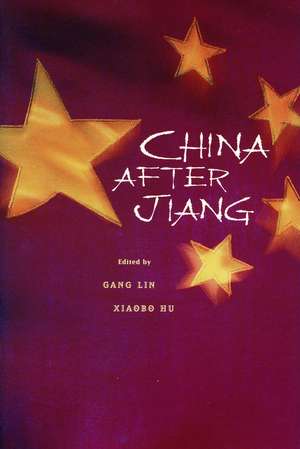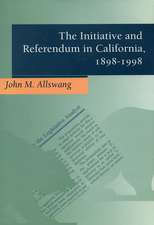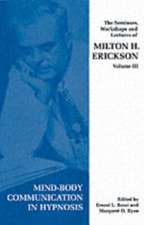China after Jiang
Editat de Gang Lin, Xiaobo Huen Limba Engleză Paperback – 13 iul 2003
Because power in China is so concentrated at the top, changes in leadership usually mean changes in many other domains as well. In this study, based on documents released around the time Jiang Zemin left office in November 2002 and interviews with Chinese officials, the authors concentrate on more fundamental institutional changes, both those under way well before Jiang stepped down and those still urgently needed if China is to remain stable and prosperous in the 21st century. Topics addressed include the role of ideology, the issue of legitimacy, rule-making and -breaking, Party governance, the use of state power for economic ends, state-society relations, and decision making in foreign policy.
The authors ask how changing concepts of property rights have influenced China's development, and whether present and future leaders will be able to maintain the Party's monopoly on political power by partially democratizing the party itself. They conclude that strengthened institutions are critical to China's future well-being.
Contributors include Gang Lin, Xiaobo Hu, David Bachman, Lowell Dittmer, and Richard Madsen.
The authors ask how changing concepts of property rights have influenced China's development, and whether present and future leaders will be able to maintain the Party's monopoly on political power by partially democratizing the party itself. They conclude that strengthened institutions are critical to China's future well-being.
Contributors include Gang Lin, Xiaobo Hu, David Bachman, Lowell Dittmer, and Richard Madsen.
| Toate formatele și edițiile | Preț | Express |
|---|---|---|
| Paperback (1) | 168.14 lei 3-5 săpt. | |
| Stanford University Press – 13 iul 2003 | 168.14 lei 3-5 săpt. | |
| Hardback (1) | 642.41 lei 6-8 săpt. | |
| Stanford University Press – 13 iul 2003 | 642.41 lei 6-8 săpt. |
Preț: 168.14 lei
Nou
Puncte Express: 252
Preț estimativ în valută:
32.17€ • 34.40$ • 26.83£
32.17€ • 34.40$ • 26.83£
Carte disponibilă
Livrare economică 27 martie-10 aprilie
Preluare comenzi: 021 569.72.76
Specificații
ISBN-13: 9780804749190
ISBN-10: 0804749191
Pagini: 172
Dimensiuni: 152 x 229 x 10 mm
Greutate: 0.29 kg
Ediția:1
Editura: Stanford University Press
Colecția Stanford University Press
ISBN-10: 0804749191
Pagini: 172
Dimensiuni: 152 x 229 x 10 mm
Greutate: 0.29 kg
Ediția:1
Editura: Stanford University Press
Colecția Stanford University Press
Notă biografică
Gang Lin is an Asia Program Associate at the Woodrow Wilson International Center for Scholars. Xiaobo Hu is Assistant Professor of Political Science at Clemson University.
Descriere
One of the first evaluations of China's leadership transition with Jiang Zemin's 2002 retirement as Communist Party chief, this book probes the country's related institutional transitions—both those under way and those still needed if China is to remain stable and prosperous in the 21st century.








